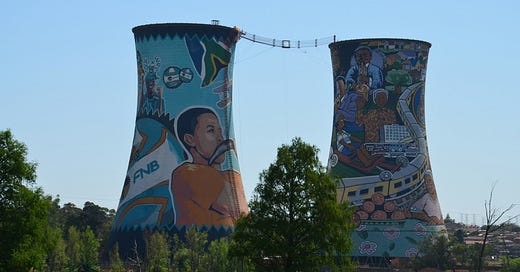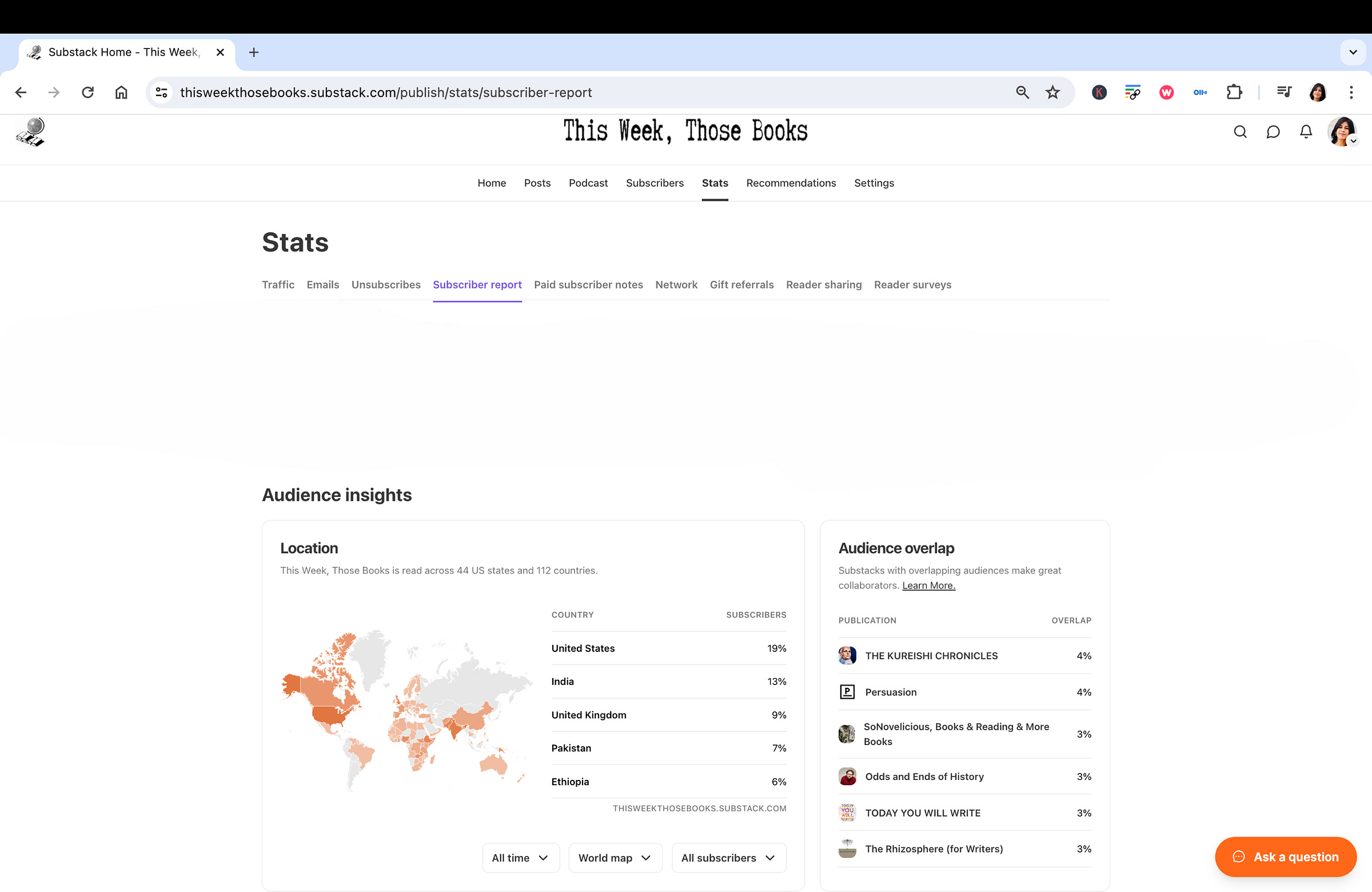South Africa votes, a rainbow nation divided
Three books on the lingering shadow of apartheid and inequality
Welcome to This Week, Those Books, your rundown on books new and old that resonate with the week’s big news story.
You’re part of a community of more than 10,000 subscribers in 112 countries. Next month, we’ll be a year old. THANK YOU for letting this newsletter into your inbox. Please watch for news of a birthday giveaway and other exciting announcements in the second year of This Week, Those Books’ life.
The few minutes it takes to read this newsletter will make you smarter, faster. Or click on the audio button above for the podcast – it’s a quick listen.
These book suggestions come with a summary and quotes. So even if you don’t read the actual book, you’ll be able to discuss it. I never recommend a book I don’t like and I look through a number every week to find the few I share.
Yours,
The Big Story:
South Africa picks a new government 30 years after the end of the racist system of apartheid, in a watershed election for the young multi-racial democracy.
The mood in Nelson Mandela’s rainbow nation as well as his governing African National Congress (ANC) party is downbeat.
The ANC, like India’s freedom-fighting Indian National Congress in 1977, is faced with many disillusioned voters and perhaps, its very first loss of a parliamentary majority.
While South Africa makes headlines for international activism on Israel’s punishing operations in Gaza, ending the Ukraine war and promoting solidarity of the ‘Global South’, its domestic situation is profoundly difficult:
The World Bank says it is “the most unequal country in the world”.
At nearly 33% joblessness, according to the Statistics South Africa government agency, its record outstrips Djibouti and Kosovo.
One of the world’s most crime-riddled countries with roughly 70 murders a day, it is worse than Honduras and Syria.
It has faced a crippling electricity crisis – power outages of up to 12 hours a day for years – and massive government corruption scandals.
This Week, Those Books:
A bestselling true story of growing up biracial in a country where the white man was born to rule.
The first English language novel by a Black woman to be published in South Africa.
A sweeping history of South Africa, from pre-colonial “pristine affluence” to centuries of European oppression and finally, liberation.
This Week, Those Books (TWTB) is a labour of love. I do it because I believe it’s important to provide context by joining the world of news and books. If you value what I do, please upgrade to paid to help keep TWTB accessible to our community in 112 countries (see screenshot below). Thank you so much.
The Backstory:
South Africa lived with apartheid, the Afrikaans language word for “apartness” or legal segregation of the non-white majority, from 1948 to 1994.
But white supremacy was a key aspect of government policy long before apartheid formally began.
Mandela was the country's first Black head of state and the first elected in a fully representative democratic election.
Born a Crime
By: Trevor Noah
Publisher: Spiegel & Grau
Year: 2016
My rating: A page-turner
This is a memoir by comedian Trevor Noah, former host of the American satirical TV programme The Daily Show. It documents the tough reality of life as a mixed-race boy in Soweto, during apartheid. The title refers to a dark fact – interracial relationships were illegal in South Africa until 1985, one year after Noah was born. As the son of a white Swiss/German father and a Black Xhosa mother, he was considered the “product” of crime from birth and found himself in the bewildering situation of being “too dark” to be accepted by white people and “too white” to be part of the Black community.
Choice quotes:
“The triumph of democracy over apartheid is sometimes called the Bloodless Revolution. It is called that because very little white blood was spilled. Black blood ran in the streets.”“Perhaps the starkest of these divisions was between South Africa’s two dominant groups, the Zulu and the Xhosa. My mother is Xhosa. Nelson Mandela was Xhosa…The Zulu went to war with the white man. The Xhosa played chess with the white man.“
“Apartheid was a police state, a system of surveillance and laws designed to keep black people under total control. A full compendium of those laws would run more than three thousand pages and weigh approximately ten pounds, but the general thrust of it should be easy enough for any American to understand. In America you had the forced removal of the native onto reservations coupled with slavery followed by segregation. Imagine all three of those things happening to the same group of people at the same time. That was apartheid.”
Between Two Worlds
By: Miriam Tlali
Publisher: Longman
Year: 1979
My rating: An eye-opener
In 1975, Miriam Tlali became the first Black South African woman to publish a novel. The experience left her bruised. Her book had a title she considered frivolous – Muriel at Metropolitan – and the semi-autobiographical account was heavily edited. Republished in 1979, Tlali’s story was finally told as she wished it to be. And promptly banned by the South African government. Even so, we get to live the daily humiliations of Muriel, a Black office worker at the Metropolitan, a Johannesburg hire-purchase shop for radios and household goods. We cringe at the pass system, the segregated office washrooms, public transport and drinking fountains.
This is practically oral history disguised as fiction. Priceless.
A History of South Africa
By: Leonard Thompson (revised and updated by Lynn Berat)
Publisher: Yale University Press
Year: 2014
My rating: Insightful
A classic that takes the reader through time, before and after the Portuguese, then the Dutch, and the British descended on South Africa, changing “the course of both Western and Eastern history”. This fourth edition, is dedicated to the memory of Yale history professor Leonard Thompson, who was educated in England and South Africa. It explores the tumultuous changes in post-apartheid South Africa as it dealt with truth-telling, reconciliation and trying to de-racialise the whole system.
Choice quotes:
“Indigenous Southern Africans were not a tabula rasa for white invaders or capitalists to civilize or to victimize.”
“Slavery created far the most significant division in Cape society. As in other slave societies, the relationship was rooted in the fact and threat of violence.”









